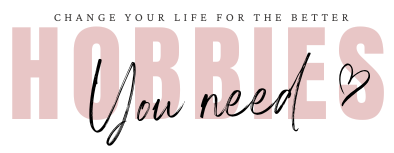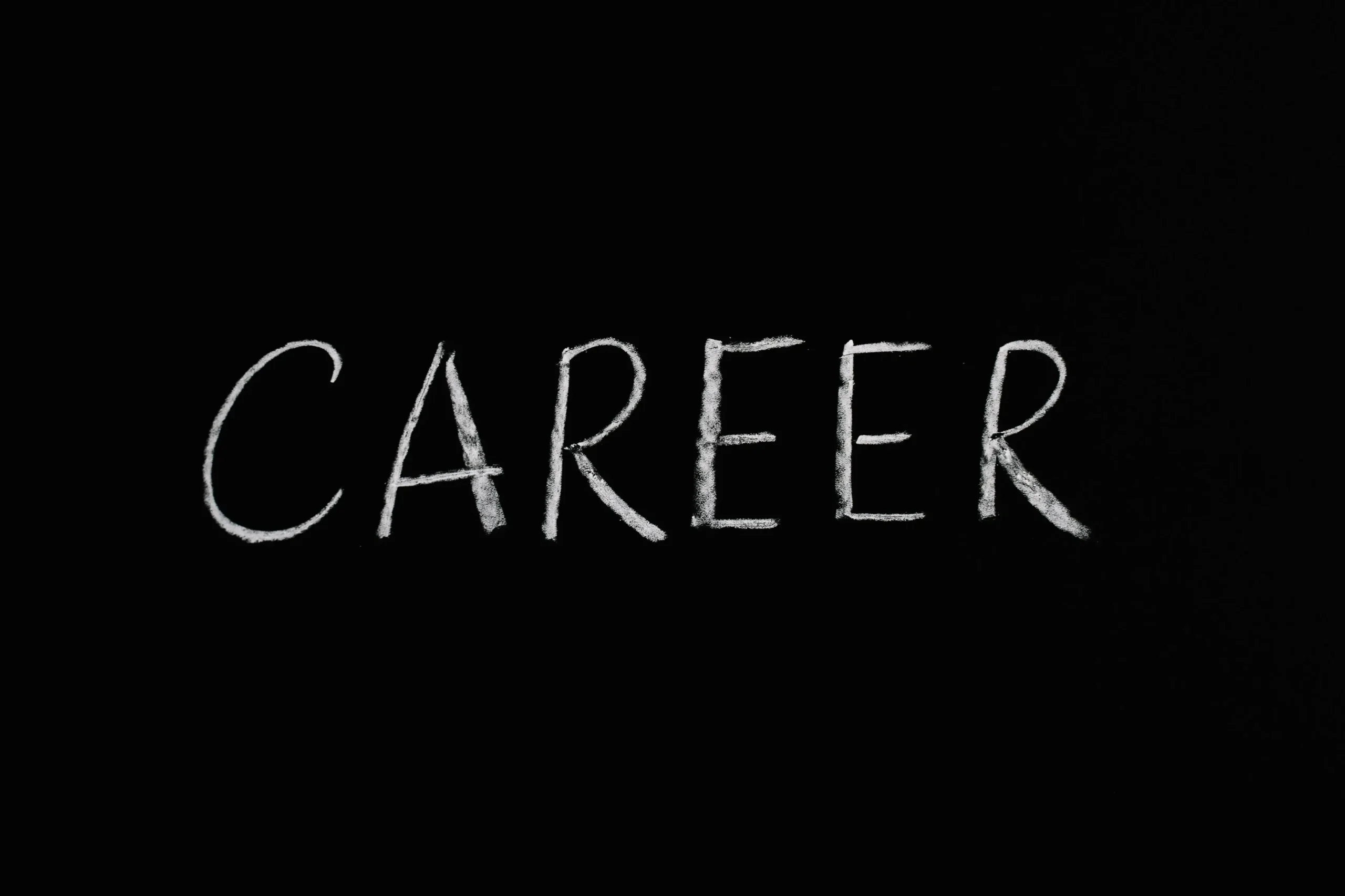Developmental Goals: Strategies for Personal Growth

Imagine standing at a crossroads, wondering how to turn vague dreams into real progress. Developmental goals are your roadmap—they transform “someday” into “today” by turning broad aspirations into actionable steps. Whether you want to boost confidence, advance your career, or build healthier habits, these objectives anchor your journey in purpose.
Research control over your path. When you focus on clear, achievable targets, such as improving communication skills or mastering time management, you boost yourself-confidence and resilience.
Developmental goals work best when structured using the SMART framework—specific, measurable, achievable, relevant, and time-bound steps that keep you focused. Breaking big aims into smaller tasks prevents overwhelm, while mentors or accountability partners can keep you on track.
Table of Contents
Understanding Developmental Goals and Their Importance
Developmental goals are like maps to your future. They help you acquire new skills and habits that can transform your life. Unlike quick fixes, they aim for lasting growth in your personal and professional life.
What Are Developmental Goals?
Think about learning a new language or becoming a better leader. Developmental goals make these dreams real. They guide you toward self-improvement in your career, health, or relationships. For instance, companies that use these goals tend to see improved employee performance.
The Science Behind Personal Development
Psychology reveals that we all desire growth. Maslow’s hierarchy suggests that we strive to reach our highest potential. Research has shown that setting goals can increase productivity and overall happiness. Tools like CliftonStrengths or Ikigai help match goals with our values, leading to success.
Why Setting Developmental Goals Matters
- They create focus: 85% of organizations report improved retention when employees pursue growth aspirations.
- They build confidence: Learning new skills improves problem-solving and adaptability.
- They drive innovation: Companies with developmental goals stay ahead in the market.
Every step toward a developmental goal enhances your ability to adapt, collaborate with others, and innovate. By setting clear goals, you invest in a future where growth is always on the horizon.
The Difference Between Developmental and Performance Goals
Developmental goals help you grow by improving skills and knowledge over time. For instance, aiming to “master public speaking” is a developmental goal. It’s about improving your communication skills. On the other hand, “deliver 10 successful presentations this quarter” is an achievement objective. It focuses on immediate results.
- Sales Professional: Achievement objective = $500k in sales by Q2 end; developmental goal = attend a negotiation workshop to boost skills
- Software Developer: Achievement objective = fix 20 bugs in two weeks; developmental goal = learn a new programming language
- Team Leader: Achievement objective = raise productivity by 10% in three months; developmental goal = earn a leadership certification
Developmental goals are checked every six months or a year to see how you’re doing. They match up with the company’s long-term plans. This way, your growth helps both your career and the company’s success. By using both types, you build skills that help you meet your goals.
Key Categories of Developmental Goals
Developmental goals help organize your growth into clear areas. By focusing on specific categories, you can track progress in every part of your life. Let’s explore the main types of goals to prioritize.
“Erikson’s stages show how addressing life challenges drives personal growth objectives.”
Professional Development Goals
Professional development aims include skill-building and leadership training. For example, learning coding or management techniques boosts career advancement targets. Early recognition of skill gaps—such as childhood milestone tracking—helps adults develop effective strategies for growth. Erikson’s autonomy stage is linked to taking ownership of one’s career paths.
Personal Growth Objectives
Personal growth objectives encompass self-improvement, including the development of emotional intelligence and mindfulness. Piaget’s cognitive development theories explain how problem-solving skills develop, facilitating informed decision-making. Practices such as journaling or meditation can help build self-awareness.
Physical and Health-Related Goals
Physical health goals focus on fitness and wellness. Regular exercise and stress management improve overall health, aligning with Erikson’s initiative stage for adult development. Nutrition and sleep routines play a crucial role in maintaining long-term vitality.
Read also: Embrace Yourself: A Guide to Self-Love
Financial Development Goals
Financial development goals cover budgeting and investment planning. Building financial literacy helps achieve stability, a crucial aspect of adult development. Tracking savings and reducing debt creates secure foundations for future opportunities.
Relationship and Social Goals
Relationship goals include developing practical communication skills and establishing a strong professional network. Kohlberg’s moral development theories emphasize the importance of ethical interactions in social growth. Joining groups or practicing empathy strengthens both personal and professional connections.
How to Identify Your Most Important Developmental Goals
Begin by considering your strengths, passions, and long-term aspirations. Ask yourself: What skills do you already do well? What tasks make you feel alive? What kind of legacy do you want to leave? These questions help you find where your developmental goals will make the most significant difference.
“What excites me?” This question unlocks passions that fuel meaningful growth aspirations.
- Do a self-assessment. List your strengths, weaknesses, and values. Then, compare them to where you want to be in 3–5 years to find gaps.
- Ensure that your goals align with your values. Pick objectives that align with what’s important to you, like work-life balance or career growth.
- Use the SMART framework to make your goals better. Please make sure they are Specific, Measurable, Achievable, Relevant, and Time-bound.

When deciding what to focus on, pick goals that have the most significant impact. Think about which goals fix urgent skill gaps or open new career doors. For example, a manager might focus on leadership training if they wish to mentor future teams.
Keep checking how you’re doing and change your goals as needed. This way, your efforts stay on track and aligned with your unique path. Developmental goals should be challenging but reachable, guiding you toward real growth.
SMART Framework for Setting Effective Developmental Goals
Turning vague ambitions into actionable plans starts with the SMART framework. This method ensures your developmental goals are focused, trackable, and aligned with your priorities.
Specific: Defining Clear Objectives
Specificity removes ambiguity. Instead of “improve my skills,” define a clear objective like “Increase monthly app users by 1,000 by optimizing social media posts”. Jane, a product manager, used this approach to clarify her goals. Clarity turns abstract ideas into actionable steps.
Measurable: Creating Progress Benchmarks
Track your progress with quantifiable metrics. For example, aim for “a 90% customer satisfaction rating via quarterly surveys”. Progress benchmarks like these let you see how far you’ve come. Tools like spreadsheets or apps help monitor these markers over time.
Achievable: Setting Realistic Targets
Balance ambition with reality. Jane cut her social media platforms from 5 to 3 to match her team’s capacity. A goal like “increase sales by 15%” becomes achievable when matched to available resources. Stretch goals should feel reachable, not overwhelming.
Relevant: Aligning with Your Values
Goals must connect to your core values. Jane’s user growth target directly supported her company’s mission to boost loyalty. A goal like “build leadership skills” aligns with career aspirations, ensuring efforts stay purposeful.
Time-bound: Establishing Deadlines
Deadlines create urgency. Jane set a Q1 2022 deadline for her app goal. A customer support team might aim for a response time of under 24 hours by Q3. Timelines prevent procrastination and help maintain momentum.
Applying SMART ensures developmental goals evolve beyond theory. By setting progress benchmarks and celebrating self-improvement milestones, you transform abstract dreams into measurable achievements.
Developmental Goals for Work That Drive Career Advancement
Professional growth begins with clear career advancement targets that align with your strengths and aspirations. Whether you’re new or experienced, setting developmental goals for work that meet company needs boosts your success. First, identify the skills you need to improve and learn how to stand out in your field.

Skill Enhancement Goals for Professional Growth
Work on skill enhancement goals that keep your skills current. For instance:
- Learn the basics of quantum computing to stay ahead in tech.
- Enhance your storytelling to convey complex ideas with clarity and effectiveness.
- Get good at data analysis with tools like Tableau or Python.
Read also: The Top 20 Hard Employability Skills to Master
Leadership Development Objectives
Skills like strategic planning and team management lead to more prominent roles. Think about:
- Take IMD’s “Leadership Essentials” program to improve decision-making.
- Use nonviolent communication to solve workplace issues.
- Find a mentor to learn from experienced leaders.
Networking and Relationship Building Goals
Expanding your network opens up new chances. Here’s how to do it:
- Go to industry events every quarter to meet others.
- Join Toastmasters to improve speaking and networking.
- Follow industry leaders on LinkedIn and engage with their posts.
Use tools like Trello to keep track of your progress. Please check if your goals are up-to-date with your career goals. Making small, steady efforts in these areas can lead to significant steps towards your career dreams.
Examples of Developmental Goals in the Workplace
Setting clear developmental goals in the workplace starts with real-world examples of developmental goals. Here’s how to align them with your career phase and industry:
- Early Career Focus: Master a new software tool, such as Excel or GenAI platforms. Attend workshops to build technical proficiency or join Toastmasters to enhance your public speaking skills.
- Mid-Career Growth: Lead a cross-department project to strengthen collaboration skills. Enroll in courses on strategic planning or conflict resolution to advance leadership abilities.
- Leadership Development: Mentor junior staff to foster talent. Implement diversity initiatives to promote inclusive teams. Track progress using tools like Sertifier for skill tracking and assessment.
For measurable steps, break goals into smaller tasks. For example, “Learn UX design basics” could involve weekly online courses and monthly project prototypes—pair goals with deadlines and resources like LinkedIn learning or mentor feedback. Regular check-ins and celebrating small wins help maintain momentum.
Whether it’s improving communication, technical skills, or team leadership, these examples of developmental goals pave the way for growth and development. Align them with your role’s demands and industry trends to stay competitive.
Personal Developmental Goals for Self-Improvement
Personal growth is more than just career goals. It shapes how you live, interact with others, and find peace within. By setting self-improvement milestones, you build a strong foundation for overall well-being. Here are some steps tailored to your unique needs.
Emotional Intelligence Development
Improve your relationships and self-awareness with these tips:
- Journal daily to gain insight into your emotions.
- Listen actively in conversations—pay full attention without interrupting.
- Establish clear boundaries at work and home to avoid feeling overwhelmed.
Mindfulness and Mental Wellness Goals
Stay mentally sharp with these routines:
- Meditate for 10 minutes each day and track your stress levels weekly.
- Take a 15-minute walk outside daily to refresh your mind and body.
- Write down three things you’re thankful for each night to stay positive.
Creative Expression and Hobby Development
Follow your passions for joy and creativity:
- Join an online art or writing class to learn new skills.
- Spend 30 minutes a week on a hobby, like music or gardening.
- Share your work with friends or online to get feedback.
These goals are most effective with regular effort. Small habits like journaling or meditating weekly can lead to significant changes. Celebrate every small victory, like a better mood or mastering a new skill.
Creating an Action Plan to Achieve Your Developmental Goals
An action plan makes big goals into smaller, doable steps. For example, instead of saying “exercise more,” plan to walk for 30 minutes three times a week. Write these steps down on sticky notes or in an app to keep them in sight, helping you stay committed.
- Break goals into specific actions. Define parameters like days, time, and activities.
- Reserve calendar slots for development tasks to prioritize them over distractions.
- Choose a support network—mentors, peers, or online groups—to maintain accountability.
- Experiment with methods like gradual progress or all-at-once changes to determine what works best.
- Review progress weekly, celebrate milestones, and adjust plans with self-compassion.
Being proactive can really help you grow: 86% of workers look for ways to improve. Harvard Business Review says those who take action innovate more. Use sites like HBS Online for courses to build your skills. Keep track of your progress with journals or apps, and ask for feedback to improve your path. Staying consistent and flexible keeps your plan on track with your goals.
Tracking Progress: Metrics and Methods for Measuring Growth
Progress benchmarks help keep your goals on track. Without tracking, it’s hard to see if you’re getting better. Use tools and feedback to spot trends and adjust early.

Tools for Monitoring Development
- Project management apps, such as Asana or ClickUp, track deadlines and task completion.
- Data platforms like Tableau or Google Analytics show trends in skill growth over time.
- Regular skill assessments and journals highlight strengths and areas to improve.
Employees with engaged mentors are 20% more likely to stay with their employer, showing feedback’s role in growth.
The Role of Feedback in Assessing Progress
Feedback from peers or mentors provides clarity. Use 360-degree reviews to spot blind spots. Pair with mentorship programs to align your path with real-world insights.
When and How to Adjust Your Goals
- Check progress benchmarks every 3-6 months to see if goals remain relevant.
- Adjust timelines if external factors shift, like new job roles or health changes.
- Rethink goals if feedback shows they’re no longer aligned with your values.
Adaptability is key. A study reveals a 19% increase in revenue in teams with diverse feedback loops.
Overcoming Common Obstacles to Reaching Your Goals
Reaching your developmental goals can be challenging. You might face fears, tight schedules, or burnout. But with innovative strategies, you can get past these hurdles.
- Fear of failure: Doubting if efforts will pay off.
- Procrastination: Putting off tasks that move you toward examples of developmental goals.
- Burnout: Overextending yourself physically or mentally.
“Mistakes are data, not disasters. Use them to adjust your path, not quit entirely.”
Here are some tips to keep moving forward:
- Make a timeline with clear deadlines to fight procrastination.
- Divide big goals into daily tasks. Small steps add up.
- Surround yourself with mentors or peers for help and support.
Don’t let perfectionism hold you back. Start now, even if it’s not perfect, and improve as you go. If time is limited, prioritize the most critical tasks first. Celebrate your small victories to keep you motivated and remind you of the importance of your goals.
Remember, growth means being flexible. Change your plan if needed, but keep your long-term vision in sight. Every challenge is a chance to learn, and every step forward is a win.
How to Stay Motivated Throughout Your Development Journey
Only 10% of Americans keep their New Year’s resolutions by year’s end. Don’t let this statistic stop you. Use lasting strategies to keep moving toward your goals, even when it’s slow.
Building Support Systems
Surround yourself with people who help you grow and thrive. Work with mentors, join groups, or use apps like Habit Coach to track your progress. Peer support can increase success by as much as 30%. Share your progress weekly to maintain momentum.
Celebrating Milestones and Small Wins
- Reward yourself after reaching mini-goals, like a spa day for finishing a course
- Use a vision board to track your progress toward your goals
Celebrate every small win. They show you can grow and achieve more.
Maintaining Momentum During Setbacks
When faced with obstacles, see them as chances to learn. Use feedback to tweak your plans, not to quit. By rewriting your plan with smaller steps, you can start again without getting burned out.
Conclusion: Embracing Continuous Growth Through Developmental Goals
Developmental goals are not just the end; they are the way to become your best self. Companies are serious about growth, with 95% planning to keep or increase their training budgets. Your path starts with small, achievable steps like setting SMART goals. Writing them down can increase success by 20%, demonstrating its power as a way to track your progress.
Look at people like Jourdan Hathaway, who improved her skills through clear plans like Project FLAT. She focused on traits like resilience and empathy, showing how personal growth leads to better leadership. Even small goals, like daily journaling or weekly skill practice, can build momentum over time.
Keep track of your achievements by setting self-improvement milestones, like mastering a new skill or getting better at time management. Celebrate your wins to stay motivated, as progress boosts your confidence and self-esteem. Networking and getting mentorship can also help by giving you access to new resources and ideas.
You can start today by selecting a goal that aligns with your values. It could be learning a new language or improving teamwork skills. Remember, every small step counts. Your journey starts now, so choose a first step and take it today.
FAQ
What are developmental goals?
Developmental goals are plans for personal and professional growth. They focus on acquiring new skills and expanding their knowledge. This approach helps you improve in a structured way.
How do developmental goals differ from performance goals?
Performance goals aim for specific results, such as obtaining a promotion. Developmental goals, on the other hand, focus on growing skills and becoming better at things. This includes improving communication and emotional intelligence.
Why are developmental goals important?
Setting developmental goals boosts motivation and focus. They help you understand yourself better and lead to a more fulfilling life. Goals act as a guide for personal growth and highlight areas for improvement.
What categories can developmental goals fall into?
Goals can be divided into several areas. These include career goals, personal growth, physical health, financial goals, and improving relationships. Each category helps in different ways.
How can I identify my most critical developmental goals?
Begin by reflecting on your strengths, weaknesses, and what you value. Use tools to find where you need to grow. Make sure these goals align with your values and plans.
What is the SMART framework for setting developmental goals?
SMART stands for Specific, Measurable, Achievable, Relevant, and Time-bound. It helps set clear, achievable goals with a focus on progress and deadlines.
What are some examples of developmental goals in the workplace?
Workplace goals include learning new software, improving negotiation skills, or becoming a better public speaker. These goals help you grow professionally and increase your value at work.
How can I create an action plan to achieve my developmental goals?
Break down big goals into smaller steps and actions. Find the resources you need, plan your schedule, and consider the challenges ahead. Make sure your plan includes ways to stay accountable and keep moving forward.
How do I track my progress toward developmental goals?
Use tools like skill assessments, journals, and apps to track your progress. Regular self-reflection and feedback from others can also help you see how far you’ve come.
What common obstacles might I face while pursuing developmental goals?
You might struggle with time, resources, fear, perfectionism, or losing motivation. Recognizing these challenges helps you find ways to overcome them and stay focused on your goals.
How can I maintain motivation throughout my development journey?
Surround yourself with support, celebrate your achievements, and find ways to stay motivated when faced with setbacks. This will help you keep moving forward on your development path.


